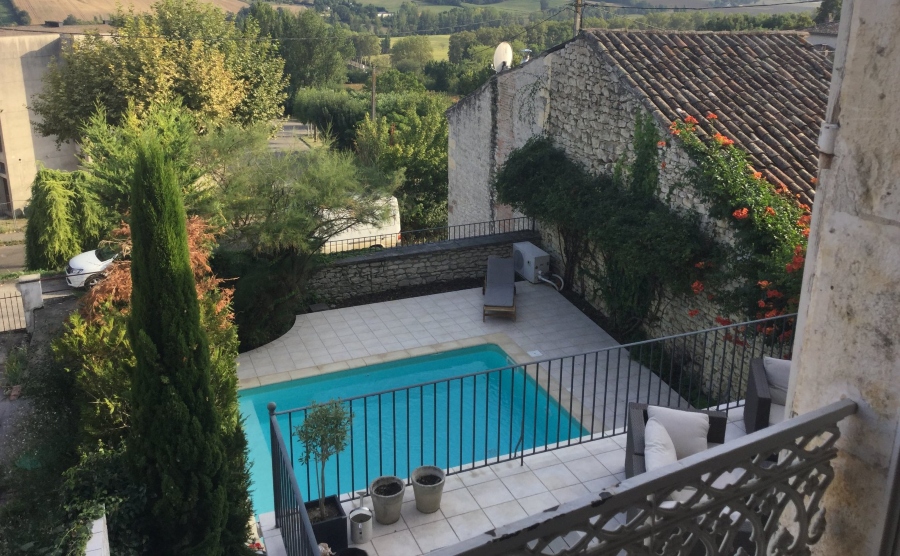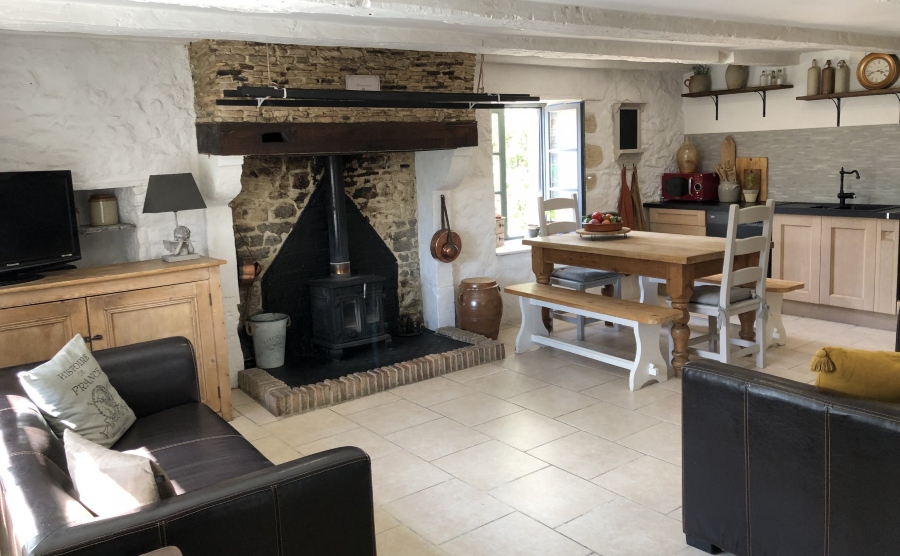One of the joys for expats relocating to France is affordable property prices. As a result, several of us now live in properties that we might have only dreamt of owning in the UK. Larger houses and areas of land contribute to wonderful new lifestyles. But with them, comes maintenance and upkeep. Never more so than in the run up to winter in France.
Preparing for winter in France is all about planning. Whilst Autumn is a time of change, it is also a time for those jobs to ensure that both your property and garden is prepared for season to come. There is much to do. A lot of which, most of us may not have previously considered. And preparation time now, is time very well spent, to mitigate risk between now and spring.
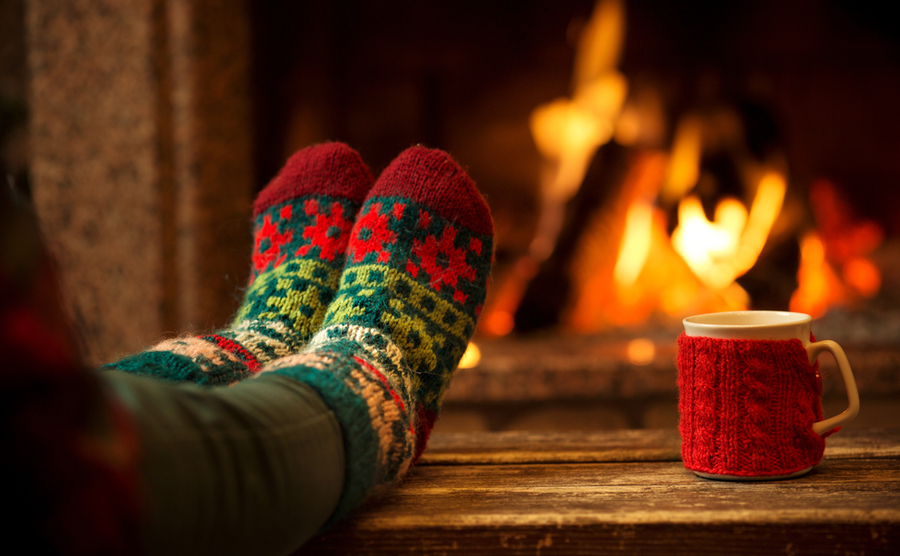
Wooly socks by the fire
The garden
Autumn in France is truly beautiful. The leaves turn orange and temperatures often remain reasonably high. Autumnal days bring blue skies, despite temperatures starting to slowly dip. But once the leaves have turned red, they drop. And keep dropping. Raking up leaves in the run up to winter in France can feel like a never-ending task. One day it is done, the next as if it had never been done at all.
If you are lucky enough to be the proud owner of walnut trees, it is also the time that they start falling. Gathering walnuts can be fun, but an equally arduous task. Even with the aid of specific gadgets like the rolling cage. However, this work can not only provide valuable supplies for those delicious walnut and coffee cakes during winter, but also potential income. All over France there are businesses who will buy walnuts, to turn into walnut oil. So, if you are overrun, don’t just leave them to spoil. This is an avenue worth considering.
Whilst temperatures during winter in France may not quite reach those of in the UK, it is important to remember to turn off outdoor taps as temperatures drop. Freezing pipes can quickly give you an unpleasant surprise later on.
Find homes in France via our property portal.
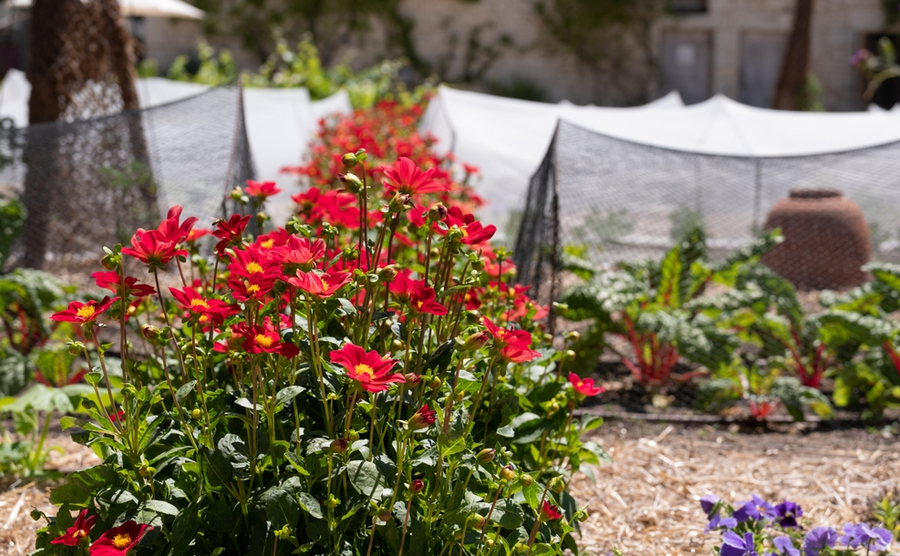
Lemere, France 2022 I Image rights: Lois GoBe via Shutterstock
Plants and vegetable patches
If you’ve spent spring and summer laboriously tending prized plants and veggie patches, now is the time to protect them from potential frosts. Perhaps the only time during winter in France that you will see frenetic outside activity from the French. When putting their most prized possessions under cover of some sort.
Whether that means bringing plants inside into garages and barns or covering trees or shrubs with fleece frost protectors, this is work well worth doing. Just a few days of subzero temperatures may kill off those things you’ve put so much energy into over the previous year. And making sure that vegetables are protected is not simply a question of love, more one of finances for many in France.
Pools
People often find themselves owning swimming pools when purchasing property in France. A blessed relief on days when temperatures are at their highest and most unforgiving. But again, requiring routine maintenance and upkeep. During summer months, there are the routine tasks of testing, treating and cleaning. But come winter in France it is important to prepare adequately. Winter treatment needs to be added to the water, then a few days later, pumps should be turned off and removed. After which pools should be covered. Particularly if you have trees surrounding the pool and don’t want the unenviable task of fishing those out as well as potentially having to drain then refill from scratch. An expensive business at the best of times, let alone a year that France has experienced unprecedented droughts and water shortages.
At this time of year, forums are full of questions from first time pool owners who do not know what is required. Pool maintenance, because of the work involved is big business in France. Getting it wrong over winter in France, can prove costly come the new summer season. Particularly if you are offering summer accommodation for tourists.
In the home
Alongside practicalities in the garden, home preparation is important. To keep house insurance valid, chimneys must be swept and an attestation to this effect received. This is an annual requirement and of course is logical to do prior to resuming routine fire lighting activities. A national past time during winter in France. Most plumbers or heating engineers offer this service.
It is also important to have your boiler serviced annually. For many using oil heating, during the summer, the only use is for hot water. The last thing you want, on the first cold day of winter in France is to fire up those radiators that have not been used for perhaps 9 months to find nothing happens. Then to find yourself in for a long wait for the engineers due to others in the same position.
Finally, perhaps take this opportunity to check that there are no slipped or displaced tiles on your property’s roof. Winter in France is the time for high winds, rain, lower temperatures and often large hailstones. So, it’s important to know that you could potentially save yourself from damage. Because roof tiles here often simply sit one on top of the other, this is potentially a job very worth doing throughout the year.
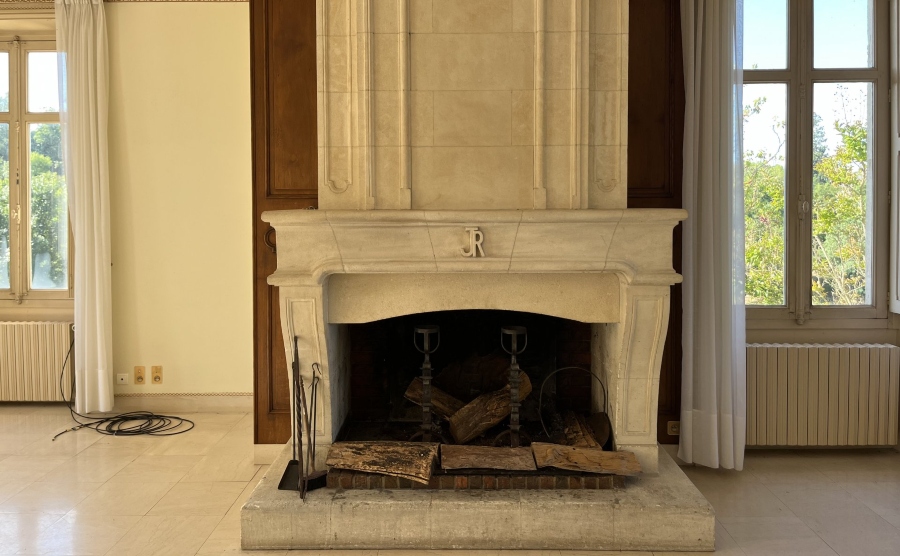
If you have a working fireplace, you may need wood for winter / Image: Assais-les-Jumeaux property for sale
Ordering Wood
One non-negotiable of surviving a comfortable winter in France is heating. If not simply for the cold, for the humidity. Don’t leave ordering those logs for the fire until winter. You can find reputable log suppliers by asking neighbours, or the local Mairie. Logs are ordered in steres. They can be delivered pre-cut to your requirements. But worth bearing in mind that if ordering pre-cut, you will lose some volume weight. So, you may actually ultimately receive less than you think.
Also remember that this is without doubt a task in itself. The delivery will almost certainly be dumped on your driveway, and you will need to spend more time than you may think on the physically demanding task of moving them to your required storage area. If you are unable to do this yourself, you will also need to seek help here.
Be warned that in the current economic climate, citizens of France have been warned of many scams involving wood supplies. If an offer seems to good to be true, particularly if asking for advanced payment, it generally is.
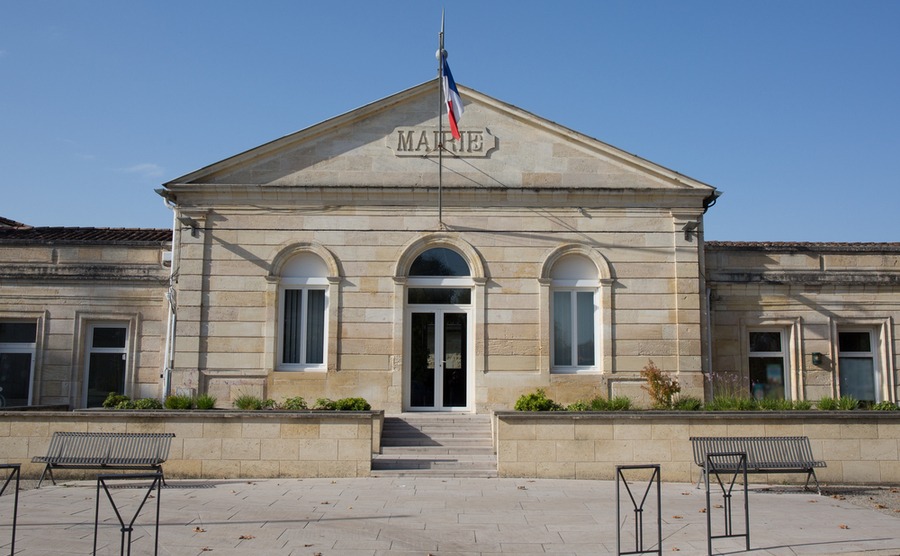
Your Mairie may have insight on oil suppliers in winter
Ordering Oil
If you have an oil boiler, whilst it is difficult to avoid the currently elevated prices, there are tricks to looking for savings. Ask at the local Mairie. Your village may well have some kind of cooperative where the village buys as a whole. Receiving a better price for a larger collective volume of oil. Failing that, there are many oil suppliers online. For example, Fioul moins cher operate their own internal versions of this based on your postcode.
Do shop around and compare prices. Particularly at times when prices are high. If you are lucky enough to be able to keep an eye on oil prices and buy when prices are low, you can always buy in advance of your requirements. For those on a budget, many oil suppliers offer the facility of 4 monthly payments incurring no interest. A god send for some.
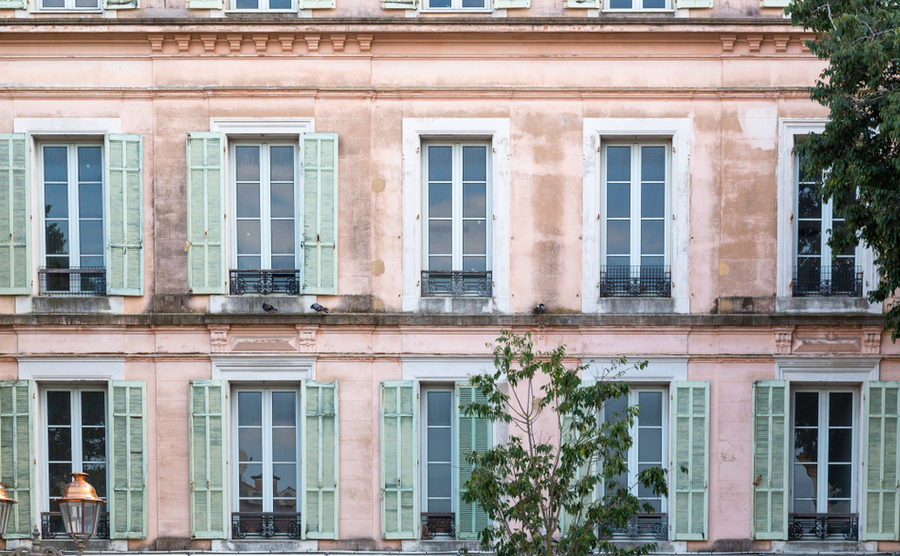
Detail of typical French house, with green shutters
Shutters
Speaking of heating, if you have yet to become an expert at proper shutter use, then now is certainly the time. Shutters are not simply a pretty window adornment. Invaluable in searing temperatures when shutting them during the day will save many days of discomfort of rising temperatures within your home. Despite the misery of sitting in the dark and having to use lights on beautiful sunny days. During winter in France, you will not often see houses with open shutters. Closing shutters keeps the heat you are generating within your property inside. As well as, to some extent keep the damp out and humidity out.
No self-respecting French person would be ploughing through expensive heating inside whilst allowing it to dissipate through windows open to the elements. Which is why, often during winter in France, it may be hard to know whether properties are actually occupied. Save perhaps for the telltale trail of smoke coming from chimneys. Whilst having your house “shut down” may seem depressing, it is the most practical way to heat your home at the lowest cost. Something that we are all more interested in than ever right now.
All that remains after the hard work of preparation, is to batten down the hatches, light that fire, get warm and cosy and grab your favourite tipple. You deserve it. And although days are shorter and the outside lifestyle is not as easy during this time, rest assured that spring is just around the corner. It will always arrive more quickly than you think. Heralded by the sight of the first herons returning on their flight path over la Belle France!


